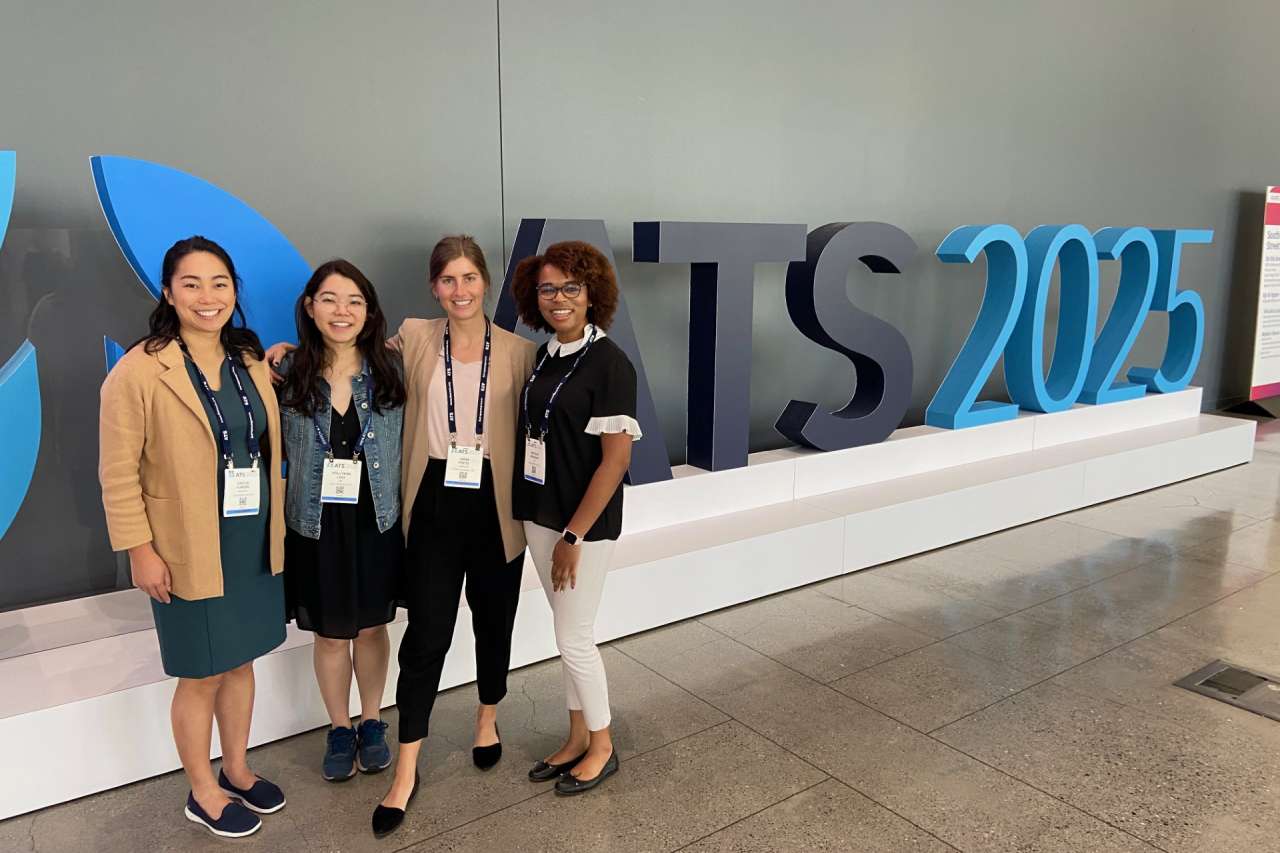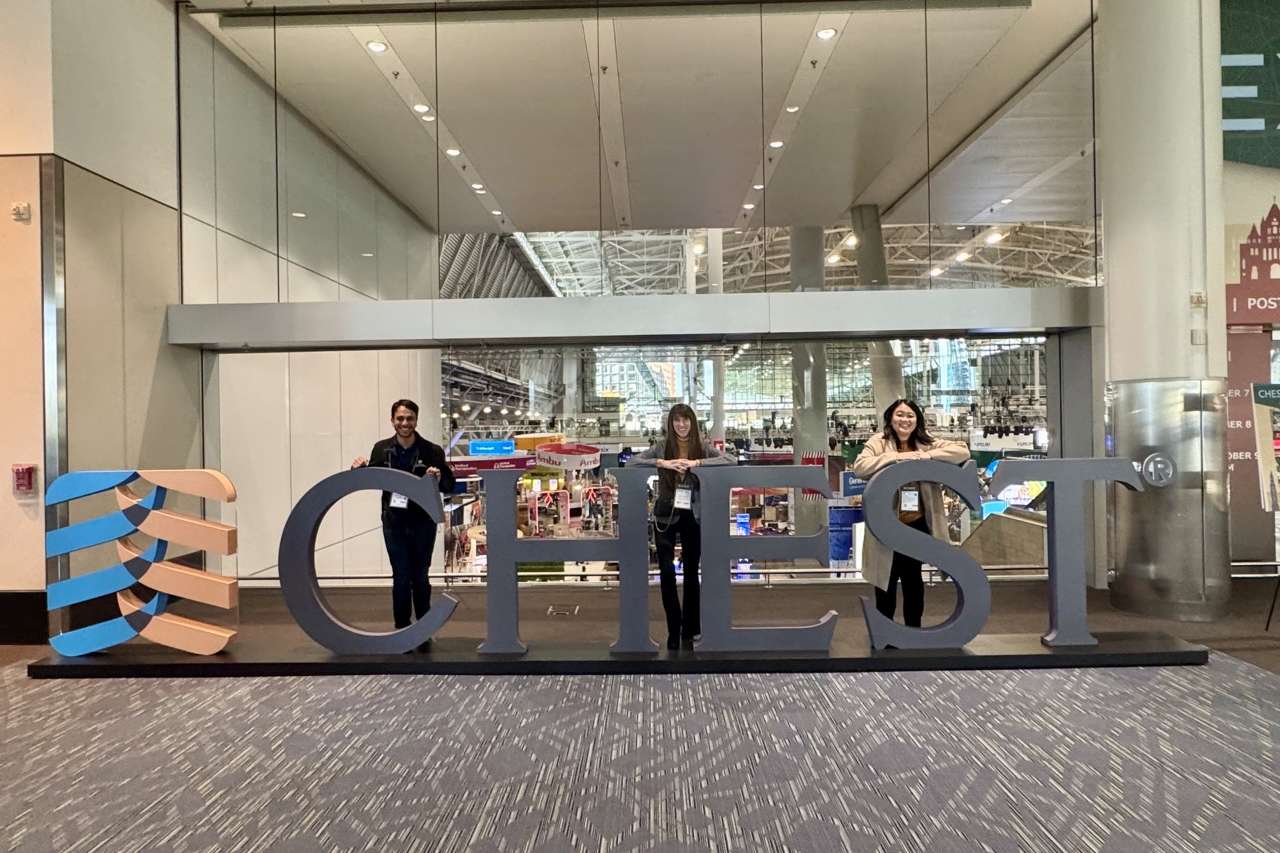Research Track

One of our Division’s missions is to produce the next generation of physician-scientists in the field of Pulmonary and Critical Care Medicine. We have a strong track record of graduates who have gone on to successful careers in basic, translational, clinical, and health services research. Fellows select one of two academic tracks by the end of their first year of fellowship: 1) Research Track or 2) Clinician-Educator Track (see prior tab). Those interested in a career as a physician-scientist, will choose the research track. Most fellows on the research track also participate in the Specialty Training and Advanced Research [STAR] program (see below and our STAR page). If interested in this program, applicants are encouraged to simultaneously apply to STAR during recruitment season. Alternatively, fellows may also choose to apply to STAR after matriculation.
OVERVIEW:
- The research tack is intended for fellows who are interested in pursuing an academic career as an NIH-funded physician-scientist. This track provides protected research time during the 2nd and 3rd years of the PCCM fellowship, as well as an (optional) 4th year if necessary (e.g. completion of PhD via STAR or preparation for a successful NIH career development award).
- Fellows in the research track have 75% protected time for research and/or coursework and 25% clinical time. In order to ensure the maintenance and ongoing training of clinical and procedural skills, the clinical time includes high-yield core rotations, one weekly half-day of ambulatory continuity clinic, and the opportunity to participate in outpatient procedures with various services (e.g. interventional pulmonology and pulmonary vascular disease).
- Fellows have the option of graduating in 3 years, or extending fellowship into a 4th year depending on their research progress and timeline. If a 4th year is chosen, fellows will maintain their continuity clinic with minimal inpatient clinical duties to prioritize protected research time.
Mentorship and guidance:
- During 1st year, fellows receive guidance from both the Pulmonary division leadership and DOM STAR program leadership (if applicable) to help select an appropriate research mentor/lab/project.
- By their 2nd year, research fellows are directed to either our 1) Basic & Translational Research committee, or our 2) Health Services & Clinical Research committee. These Pulmonary research committees meet quarterly and are comprised of senior physician-scientists, junior faculty, and co-fellows. Their purpose is to provide feedback and guidance for scientific progress, grant writing, manuscript preparation, and career development for Pulmonary trainees and junior faculty.
- Our research fellows have had success with both Pulmonary and non-Pulmonary faculty mentors (e.g. Immunology, Biophysics, Pathology, Health Services, Ethics, etc.), in addition to UCLA and non-UCLA mentors (e.g. University of Washington, University of Cincinnati, UCSF, Caltech etc.). Here is a list of the Pulmonary division’s research faculty and their profiles.
Funding and grant support:
- Our funding sources include the Pulmonary Division’s NIH T32 grant, the DOM STAR program, and the DOM IGNITE-MSCR program.
- The vast majority of our research fellows are part of STAR. This program provides the following: 1) funded advanced formal training in the form of a PhD or postdoctoral fellowship; 2) protected research time during fellowship with a path to transition to junior faculty; 3) special monetary support for scholarly activities; 4) a structured STAR curriculum including seminars in grant writing, career development, etc. See the STAR website (https://medschool.ucla.edu/star) or our STAR Program page for more details.
The Department of Medicine will support select fellows via the 2-year IGNITE-MSCR Program in one of two tracks: Clinical Trials Track or Biomedical Informatics Track. Fellows apply to this program during the first year of fellowship, and receive support in the subsequent two years in the form of 1) tuition for the MSCR program, and 2) protected research time during fellowship. Learn more:

Types of Research:
Basic & Translational Investigator Option
The basic investigator option is for fellows interested in the mechanisms of pathology and their translation to the bedside. Basic science research fellows who enroll in STAR also have the option of pursuing a PhD or postdoctoral training in a graduate school discipline through UCLA or Caltech. In recognition of the basic science education already received in medical school, as well as the concurrent clinical responsibilities of fellows, STAR basic science fellows generally have minimal coursework and no TA responsibilities.
The DGSOM campus includes prominent research laboratories, cutting-edge and comprehensive core and animal facilities, and opportunities for numerous collaborative relationships on campus and at the West Los Angeles VA. To demonstrate the breadth and depth of our Division’s research opportunities, a small sampling of current Pulmonary projects include: the mechanisms of allograft rejection following lung transplant, tumor immunology for vaccine development in lung cancer, novel -omics analyses in models of pulmonary hypertension, effects of tobacco and cannabis on lung physiology, mitochondrial metabolism in lung cancer, biomarkers of severity of disease in ARDS, cholesterol metabolism in pulmonary alveolar proteinosis, alveolar macrophage lipid immunometabolism in pulmonary fibrosis, iron metabolism in critical illness and inflammatory lung disease, and many more.
Clinical & Health Services Investigator Option
Fellows interested in health services research are encouraged to enroll in the STAR program to pursue a PhD or postdoctoral fellowship through the UCLA Fielding School of Public Health (FSPH), Division of General Internal Medicine & Health Services Research, or the Pardee RAND Graduate School. Available fields of study include epidemiology, biostatistics, precision medicine, study design, implementation science, health outcomes research, health economics, and others.
The Division also supports training for those interested in clinical trials research, with mentoring from senior faculty working on a variety of critical care and lung disease focused interventions. Fellows who are interested in pursuing a Masters’ of Clinical Research (MSCR) are encouraged to apply for the IGNITE-MSCR program.
Cross-disciplinary research teams are common in these fields, and mentors are often selected from complementary disciplines within and outside of the division of Pulmonary or Department of Medicine. Facilities and programs available for clinical research training include the pulmonary function research laboratory, the UCLA Clinical and Translational Science Institute (CTSI) and Clinical Translational Research Center (CTRC), the VA Health Services Research & Development Center for the Study of Healthcare Implementation, Innovation, and Policy (CSHIIP), and an ongoing collaboration with the Los Angeles County Department of Health Services (DHS). Current investigations include single-site and multi-site clinical and health services studies in idiopathic pulmonary fibrosis, pulmonary arterial hypertension, pulmonary alveolar proteinosis, alpha-1 anti-trypsin deficiency, COPD, health care utilization and outcomes in critical illness and chronic lung disease, and disparities in lung transplant.
For further information about research and training opportunities available to our fellows, prospective applicants are invited to contact Heather Draper with inquiries:
Heather Draper
Fellowship Program Coordinator, Pulmonary and Critical Care Fellowship
Email: [email protected]